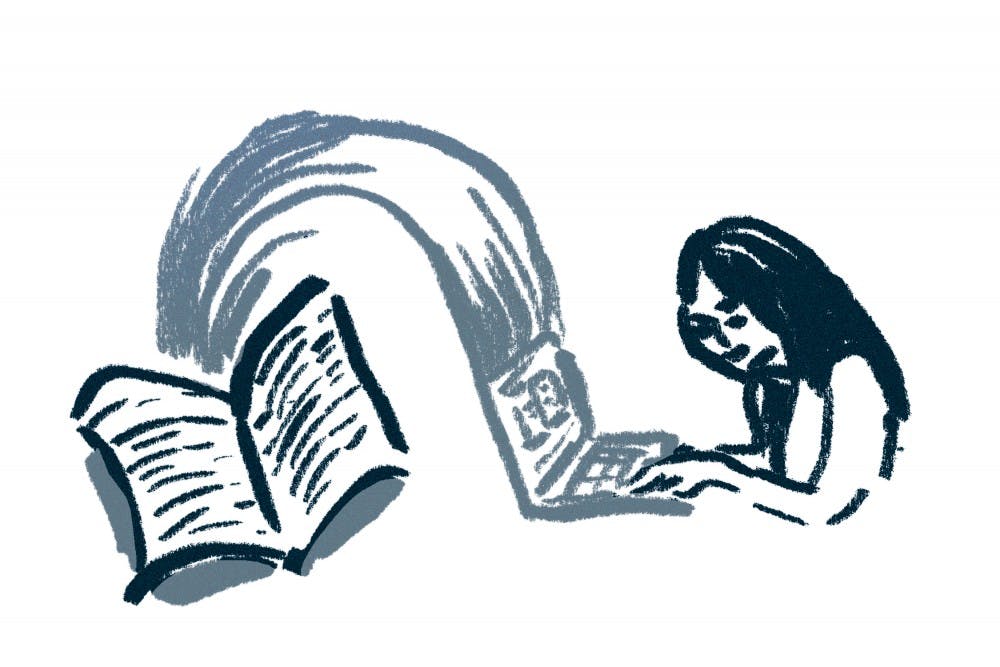Correction: This editorial lacked information on how UNC Libraries already provides inter-library loans to most types of public libraries in the state and is celebrated for its digital access. Also, in an earlier version, the editorial incorrectly labeled N.C Live as a search engine. The Daily Tar Heel apologizes for the errors.
The library is arguably the kernel of purpose for any university, including ours. UNC also professes a commitment to the betterment of our citizenry and our state. For this board, this means the resources of the UNC library system should be available to all of our residents. We are proud that our system is already doing an excellent job at this. We want it to do even better.
Even if they're not a student, residents are entitled to walk into any of the libraries — all public buildings — to peruse what they have to offer. This may be traditional books. This may be a database, periodical or journal article accessible by library guest computers. At UNC-Chapel Hill, for $25 a year you may also purchase a borrowers’ card to take a small number of traditional books off-site to read.
NC Live (www.nclive.org), established 20 years ago, is a collaboration between library systems and higher education institutions across the state. It provides access to electronic resources like periodicals, journals and e-books at home, through local libraries, for as many residents as possible. This program is a valuable step in the right direction for our state. We suggest one specific and one general improvement.
Academic journals are where cutting-edge scholarship in any imaginable subject occurs. Yet access to journals from home most often depends on affiliate status to a particular state institution. Depending on the particular institution, you may or may not have access to a particular journal.
We would like those who have collaborated on NC Live to consider consolidating all North Carolina university academic journal full-access subscriptions into this central site, with potential access for all our residents. We realize the publishers of academic journals cannot provide this service for free, but we expect expanding this access would be beneficial to readers who would not have purchased journal services individually anyway. Some kind of statewide version of the borrowers’ card fee for traditional books should be offered to any resident wanting access to academic journals for a similar nominal yearly fee, maybe even on a combined card. This would bring the full market leverage of our state knowledge institutions to bear in bargaining with publishers for the potential educational benefit of our people.
We also encourage any possible method of getting books in the hands of those residents whose mobility is limited either by rural geography, personal disability or lack of transport. Current interlibrary loan systems are a great beginning basis for further expansion and integration. Whether progress means further digitalization of content or physical delivery of materials is a matter of further research, but in principle we believe any resident should have access to any of the materials our collective state resources have to offer. Any further efficient integration of interlibrary services between county, municipal and higher education libraries should be considered.
Our higher education institutions have done a commendable job of keeping their doors, both virtual and physical, open to former students, potential students and lifelong learners in the state. If education is key to the advancement of our collective public good, then the more unlocked doors we can provide for it, the better.




